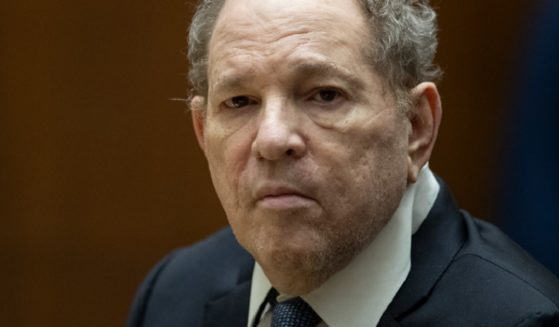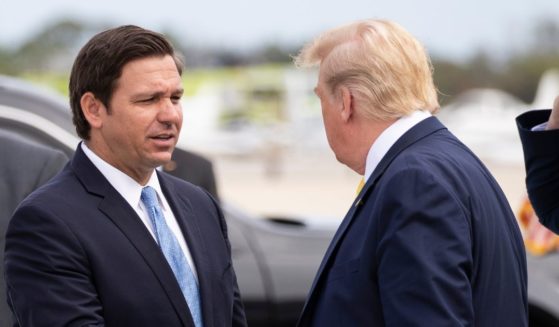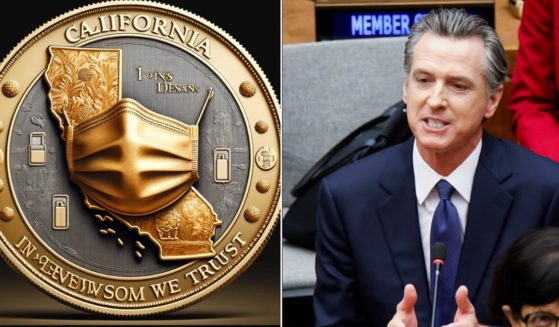EV Agenda Suffers Crushing Blow as Ford Dramatically Slashes Electric F-150 Lightning Production
Ford Motor Co. is the latest automaker to dial back on a commitment to the electric vehicle agenda, this time by cutting back production of its EV F-150 Lightning pickup truck because demand for the vehicles has cratered.
Ford had announced early this year that it intended to manufacture 3,200 Lightning models per week in 2024, but now that has changed. On Monday, Ford cut that order to only 1,600 units, Bloomberg reported.
This pullback is quite a turnaround for the company that said the F-150 Lightning would be the “test for adoption for electric vehicles” in the U.S.A.
Ford explained that the cut is simply a business decision as its losses on EVs mount. “We will continue to match production to customer demand,” Ford said in a statement.
Still, Bloomberg added that the Lightning had its best sales month ever in November with 4,393 new vehicles delivered to customers. This, even as Lightning sales fell 46 percent in the third quarter.
Tellingly, the company’s output of its gas-powered vehicles was set to remain unchanged, according to Automotive News.
Ford is now set to idle one of its three shifts at its Lightning plant potentially putting about 700 workers on layoffs. The move is a disappointment to workers who were only just added to the third shift last year on the tail of enlarging the plant by more than 70 percent, Automotive News added.
Among other companies, Ford is also pulling back on its investment in EVs generally and Automotive News noted that the company has delayed its expected $12 billion investment in EV production.
Along with pulling back on the Lightning, Ford added that it is also cutting production expectations for its Mustang Mach-E model and delaying its investment in a new battery plant planned in Kentucky.
Despite all this, Ford claims that EVs are still a growth product.
“The narrative has taken over that EVs aren’t growing; they’re growing,” CFO John Lawler said. “It’s just growing at a slower pace than the industry and, quite frankly, we expected.”
The forced EV revolution can’t come fast enough for President Joe Biden and his cabal of climate change-pushing zealots, though.
Biden continues to look for ways to shovel tax dollars into the pockets of companies like Ford in an effort to convince them that EVs should be the only sort of vehicle they need to manufacture.
Indeed, even as the automotive industry insists that EVs are a growth product and somehow the “future” of the car biz, General Motors was recently seen groveling, hat-in-hand, to the federal government and pleading for the generous tax subsidies for EVs to remain in place even as it announced plant closures because customer interest in the cars has slowed.
And in November, it was reported that carmakers are slashing prices and creating attractive new lease options in a desperate attempt to move EVs off their lots.
That task is increasingly hard to achieve, too. Last month, the Wall Street Journal reported that EVs take far longer to move off car dealer lots. In September, it took more than two months to sell a new EV.
By comparison, it took less than a month to sell a new gas-powered car and a mere three weeks to sell a hybrid. Unsold cars sitting on lots is a huge cost to car dealers.
The slowdown in sales comes as more evidence piles up that EVs are not the panacea that Biden says they are. For instance, as Consumer Reports recently noted, electric vehicles are less reliable than gas-powered cars, and another recent report even found that EVs create far more potholes in our roads than gas cars.
This cut by Ford is only the latest proof that the car industry put far too much faith in electric vehicles and that they are just now seeing the light. Anyone who wants an EV should certainly be free to buy one. But it seems that most Americans simply don’t want to join the ranks of EV owners.
Truth and Accuracy
We are committed to truth and accuracy in all of our journalism. Read our editorial standards.












